- Home
- Christie Golden
Assassin's Creed: The Official Movie Novelization Page 3
Assassin's Creed: The Official Movie Novelization Read online
Page 3
Straps were fastened over his legs, across his chest.
The image of drowsiness and peace was an illusion. Any safety had been an illusion, forever sliced to ribbons by the same bloodied blade that had ended an innocent life.
The poem spoke of winter’s sleep, of hibernation, of retreating to dream until spring. But it was no such sleep that he faced now. Cal was in the death chamber.
They tapped his arm, getting the vein to rise. He’d been in his share of hospitals, and had watched IVs drip before. But this time poison, not medicine, would soon flow through his body with every last, numbered beat of his rapidly accelerating heart.
The gallery windows opened. Cal squinted, trying to see them, but the warden stepped in front of him.
The warden’s voice was to-the-point, devoid of emotion; almost bored. And why shouldn’t it be, Cal thought bitterly. The warden had said these words often enough. There’d been a dozen or more executed in the state so far this year.
“Be it known that Callum Lynch has been found guilty of capital murder and is sentenced to die on this day, October 21, 2016. Does the prisoner wish to make a final statement?”
Happy goddamned birthday.
For a beautiful, perfect moment, hatred and anger chased away the fear of the coming darkness, leaving defiant, if illusionary, courage in its wake.
“Tell my father I’ll see him in hell.”
Perhaps then, he could get some answers.
The gurney tilted, slowly, and Cal stared up at the ceiling. The motion, mechanical, impartial, slow and steady, suddenly did what the priest, and the walk, and the warden’s statement hadn’t managed to do.
It had made this real.
He broke out in sweat, rank and clammy. His breath was coming quickly now, and he could not resist the macabre desire to turn his head and watch the clear liquid death creeping up through the tube into his arm.
It was cold as it hit his system, and each beat of his heart as it slammed against his chest pushed death through his body that much faster.
My own body is killing me, he thought.
The anger that had fueled him but a moment ago evaporated before the stark realization, come too late for him to change his actions on that day, too late to pull a punch or not grab the knife, too late to just get up and walk out, too late for anything but scalding regret and the five words that pounded through him:
I don’t want to die.
He raised his head, to see the shapes of those in the gallery, watching a human being dying right in front of them. Stern, cold faces; older, wrinkles chiseled into faces as stony as if they had been carved from rock.
Most of them were, at least… but one was not.
Cal’s body ceased to obey him as paralysis took hold. He could not move his head, nor close his eyes as they leaked tears.
So it was that the last thing Callum Lynch saw before blackness descended was the oval shape of a woman’s face swathed in shadow, and he could not help but wonder if he beheld the angel of death herself.
CHAPTER 3
’m dead, Cal thought. I’m dead, and hell is a wasteland of white.
Through a veil of lashes against the brightness, he looked around carefully, his vision blurry and his eyes burning and aching, like twin coals stuck in his head. His body felt cold, all except for his hand, which was warm, as if someone had been holding it. Flashes: honey-hued light, giggles, the arms of his mother around him, whispered words about apple-picking.
A shape hovered in front of him, fading in and out. Maybe it was the angel he’d seen when he died.
He faded back into darkness again, then again into consciousness. There was a sort of clinical smell, clean, but cold, as cold as the whiteness of the walls, of the lights.
He doubted Heaven smelled like antiseptics. Hospital, his mind said.
Maybe something had gone wrong—or right. Maybe the governor had called in with a pardon, and they’d stopped the IV drip before all the poison had reached his heart. His eyes tracked around to white pieces of equipment with colorful, small lights, and then met the impossibly blue gaze of the angel who had watched him die.
The oval of her large-eyed face was framed with short black hair, and her skin was like porcelain. Its smooth perfection was not marred, but rather enhanced, by a small mole on her forehead. She was clad in white, and her red lips curved in a gentle smile. Disbelieving, he reached out to touch her cheek, to see if she was real.
Gently, she caught his hand before he could do so, and he felt warm, strong fingers against his own.
“My name is Dr. Sofia Rikkin,” she said in a musical voice that was softly accented.
He tried to place it. French? English? It added to her otherworldliness. But she was still speaking, and her next words seized and held his full attention.
“At six P.M. yesterday evening, you were executed and pronounced dead. And, so far as anyone in the world knows or cares, you no longer exist.”
His heart surged in his chest. I’m alive. But I’m still trapped.
I have to get out of here.
Cal’s body was disobedient, sluggish, but he forced it to obey his will, clumsily ripping out the IV in his right arm, kicking and flailing and grunting as he tried to get out of the reclining chair-bed.
The angel—Dr. Sofia Rikkin—made no move to stop him, though she watched him with concern in those large, soft eyes.
“It’s better that you sit,” she advised. “You’re still processing the toxin.”
Cal blinked, trying to focus, but vision hurt. “My eyes…” he groaned, rubbing his heels into them.
“What you’re feeling right now is normal, if uncomfortable,” she said. “The tetrodotoxin is very potent, but it’s the only thing we can get past the prison doctors.”
She said the words slowly, emphasizing the logical, as if she understood that right now he still felt like Alice falling down the rabbit hole. Cal blinked, angry at his uncooperative eyes, trying to force them to see clearly.
Sofia Rikkin leaned down, her face close to his, her voice soothing. “Cal.”
He turned toward her at the sound of his name. She was so beautiful that he still couldn’t help but wonder if this was a dream—or a nightmare—before the final sleep; a last attempt by his brain screaming that he existed, he mattered.
“I’m here to help you, Cal.” How many had said that before to him, he wondered. But she looked as though she believed every word. “And you’re here to help me.”
For a moment, he wanted to. But then more memories returned. No. No, she wasn’t an angel; he was lucid enough to know that now. She was a doctor, and she had kidnapped him, and he had to escape.
He could dimly make out two metal bars that looked like door handles, and he lunged toward them. To his astonishment they opened immediately and he hit the clean white floor hard, the wind knocked out of him.
Two figures clad in white approached from his left, striding briskly. Cal turned to his right, still unable to rise, crawling, pulling himself along with his lower arms like an animal, gradually feeling movement in his lower limbs. Behind him, he heard Sofia’s voice saying, “Let him go.”
***
In a room solely devoted to interior surveillance, multiple screens were regarded by multiple observers. McGowen, Head of Security, stood a solid six feet tall, with close-cropped hair and beard, and heavily-lidded eyes that missed nothing as he watched Callum Lynch, dead man, crawl and hobble in a fruitless attempt at escape.
***
In another room, an office where antique weaponry vied with a beautiful grand piano and the finest liquor and bar set, an elegant man dressed in a casual cashmere sweater and black trousers, his gray hair and lined face making him look dashing rather than aged, also watched Cal struggle toward an illusory freedom.
***
Cal clenched his teeth, growling in his frustration with his recently-paralyzed body as he clambered to his feet and lurched through doors, stumbled past orderlies and technici
ans and cold, metallic walls and stone. Veins of artificial light flowed along the walls, and what little natural illumination there was filtered in from high up.
Cal pressed on, tripping and falling and stubbornly clambering to his feet, moving like a drunken man past tree trunks—tree trunks—that stretched upward, a bizarre sight so deep indoors, but no stranger than anything else he’d encountered here.
Step by step, though, his eyes adjusted, his body came under his control, and he picked up speed. He shambled past a guard in black with a gun at his hip, who did not stop him as he flung himself up the stairs. “Don’t touch him,” he heard Sofia say. She was behind him, following him, and her voice gave him renewed energy. Angelic she might appear, but she was his jailer.
He raced across a metallic ramp, his feet making an echoing clang, and emerged into bright sunlight. Flinging up an arm to stave off the still-painful illumination, Cal realized that, somehow, he was in a garden.
Maybe he was dead after all. He didn’t have the imagination to make this all up.
There were pathways and grass, benches and small trees, and birdsong. Slitting his eyes, Cal slowed, looking around. He was not alone in this strange garden. There were orderlies, and… patients? Prisoners? He did not know what to call them. They wore matching gray pullover tunics, white shirts, and pants.
A uniform. Cal did not like uniforms.
Some regarded him strangely, but others simply moved about, muttering to themselves, disinterested in his sudden, chaotic appearance. He moved forward, his eyes at last adjusting, to the low wall, stepping on top of it.
To one side, Cal saw helicopters: shiny, sleek, and doubtless expensive. But they did not command his attention. Far, far below, a city sprawled. But this was not an American city. This one had skyscrapers, yes, but Cal could also see ancient cathedrals, mosques, towers. You’re not in Kansas anymore, Cal thought, and something inside him shattered.
What a fool he was. Idiocy to hope that, somehow, he could escape. He was alive, he accepted that now, but, once again, he was a captive.
This time, though, he was not in a prison. He was in a goddamned fortress.
As he stood on the wall, despairing and swaying slightly, a middle-aged black man, his neatly trimmed beard white and his pate bald, stepped up beside him on his right.
“Go ahead,” he urged. “Do it.”
Cal stared down at his feet, encased in soft-soled white shoes that closed with Velcro straps. The shoes—and he—were halfway off the ledge.
“Jump.”
And the man grinned.
Cal felt the gazes of others now turning toward him, but he did not dare spare them a glance. He was trembling, knowing his limbs still were not entirely his own, wondering if he would step down, jump of his own free will—or simply fall.
The idea of jumping was tempting. To end his life on his own terms, to never again be anyone’s prisoner. But then Cal remembered the sudden revelation he had experienced as the clear, liquid death had flowed into his veins at his execution: that despite everything, he did not want to die.
Another voice came from his opposite side; Sofia’s. Devil on one shoulder, angel on another, he thought.
“You’re not a prisoner here, Cal.”
At that, he turned to look at her, his eyes narrowed with suspicion. “Doesn’t look that way to me,” he said.
“I’m here to protect you,” Sofia continued, her bearing erect and her mien calm. “If you listen to me, everything is going to make sense. You’ll learn nothing if you step off that ledge right now. But you need to trust me.”
Trust? Absurd. She had kidnapped him, for God’s sake. No matter what she said, he was a prisoner, and here she stood, asking him to trust her.
But… he was alive.
“Where am I?” He made no move to step down.
“You’re in the rehabilitation wing of the Abstergo Foundation in Madrid.”
Cal’s eyes widened for a moment. Abstergo? He knew the name, of course. Everyone knew about Abstergo Industries—everything from cough syrup to cereal was produced by them. Hell, they probably manufactured the pentobarbital used to execute prisoners and the tissues their loved ones sobbed into afterward.
Then he grinned and started to laugh softly. Undaunted, Sofia continued.
“This is a private organization dedicated to the perfection of humankind.”
He laughed harder at the crazy, delicious irony. He and anything remotely resembling the perfection of humankind had never gotten within spitting distance of one another.
Have you got the wrong guy, he thought.
But the angel wasn’t done. “With your help, Cal, we can pioneer new ways to eradicate violence.”
Eradicate violence.
His mirth faded. Violence had been as much a part of his life as breathing. It was efficient, casual, off-handed, and came so easily. It always had.
Except that wasn’t true. It hadn’t been like that when he was a child. He’d been a handful, he knew that; a daredevil, brimming with too much energy, but never cruel, never abusive, never… violent. Like an unwelcome houseguest that refused to leave, violence had come into his life the day his mother’s life had been ended by it, and not before.
What if she could really do it? And what if he could help her?
What if some kid somewhere never had to worry about waking up one day to discover his mother had bled out in the kitchen on a perfectly ordinary afternoon? To discover his father standing there, with a strange knife dripping blood?
Sofia Rikkin held his gaze for a long moment. Her ethereal, calm certainty was compelling. His eyes still locked with hers, Cal set one foot down and then the other, and stepped away from the edge.
Her serene expression didn’t change, but her eyes looked… happy. Joyful, almost. Damned if she still didn’t look like an angel to him, even if the drug had worn off.
There was a sharp, stinging sound. A small dart abruptly appeared in Cal’s neck, and he collapsed soundlessly to the ground.
CHAPTER 4
Anger welled up in Sofia. Mindful of her audience, she squelched it quickly. She turned to see the large shape of McGowen regarding her unapologetically.
Of course it would be McGowen. None of the other guards would dare to intervene after she had expressly told them to leave Cal alone.
“I had this,” she said icily.
“Your father wants him in,” McGowen said by way of explanation.
Of course. Father speaks, everyone listens. She had begun to grow tired of it years ago. Now it was becoming more than a nuisance and an implied lack of faith in her ability; it was actively interfering with her ability to obtain the results they both wanted so badly.
“He’s my patient. This is my program.”
Sofia held the security chief’s gaze a moment longer. She did not fool herself into believing that this was anything less than a classic pack dynamic, and she refused to surrender her position as alpha over McGowen.
And he wasn’t alone in observing. It was unwise of him to have challenged her in front of the patients. Most of them didn’t care, but the few who did were all present… and paying very close attention.
Moussa, as was his wont, was trying to make the situation worse, egging Cal on like that. Sofia had seen Lin here, too. The Chinese woman knew English, but she tended to be as silent and taciturn as Moussa was garrulous and extroverted. The temperate Emir was bearing silent witness to the confrontation, and so was Nathan, remaining unexpectedly calm as well.
Sofia was well aware that her father was watching from the screens in his office. He was always watching when he was on the premises. She loved her father, and respected his opinion. But she wished that he would demonstrate that he felt similarly.
Cal had undergone an extreme ordeal and had revived just a short while ago. He was not only mentally unprepared for what lay ahead of him, he wasn’t even physically ready for it. He was still recovering from the effects of the toxin that had brought him su
fficiently close to death to allow him to be smuggled out of prison.
Sofia’s plan had been to allow the newcomer time to adjust, to learn about the value of the work she was doing here, of its importance not merely to humanity, but to him personally.
Her father, on the other hand, had arrived from London determined to push things into high gear, but he had not yet told her exactly why.
Sofia had wanted Cal to come around willingly to everything, to work with them, not simply for them, but Alan Rikkin, CEO, had forced her hand.
As always.
McGowen simply stared expressionlessly at her. He knew he would win. And Sofia knew it, too.
Finally, bitterly, she said, “Prepare the Animus.”
***
Cal drifted in and out of consciousness as he was dragged down the hall, one burly orderly on each side. His head lolled back as he tried to make sense of this new room through a drugged haze. Everything about this place—no, he had a name for it now, the Madrid Abstergo Foundation—was bizarre, incomprehensible, and Cal knew enough to know what was and what wasn’t part of the drug’s effects.
First the hospital, impossibly sanitary. Then the strange collision of medieval and modern corridors and rooms through which he had stumbled. The rooftop garden and the not-quite-zombies who inhabited it, perched so high above the ground as to be eye to eye with eagles—or angels.
But this…
Church, was the first thing that came to his mind, although he had seldom darkened the door of any. The stone floor was inlaid with beautiful mosaics, and the center was a wide area encircled by arches on the ground level and on a second higher level. The overall effect was that of a honeycombed beehive.
Dimly, Cal glimpsed paintings on the walls, faded by more than his fuzzy vision. Sunlight filtering down from high windows merged with dim artificial blue light, glinting off glass cabinets housing weapons from past eras—swords, bows, knives—glimpsed blearily in passing.

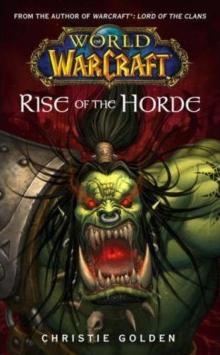 Rise of the Horde
Rise of the Horde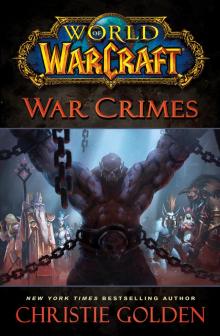 World of Warcraft: War Crimes
World of Warcraft: War Crimes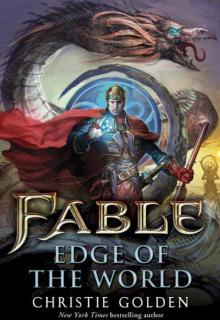 Fable: Edge of the World
Fable: Edge of the World Homecoming
Homecoming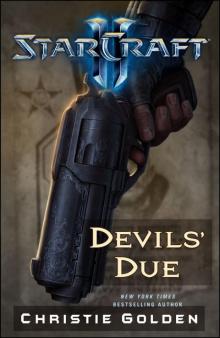 StarCraft II: Devil's Due
StarCraft II: Devil's Due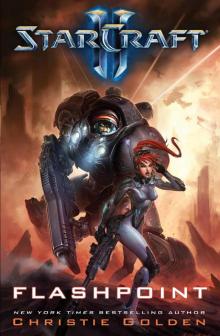 Starcraft II: Flashpoint
Starcraft II: Flashpoint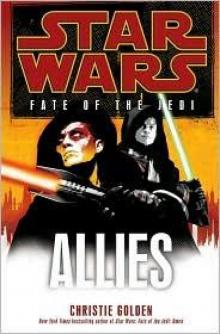 Allies
Allies Shadow Hunters
Shadow Hunters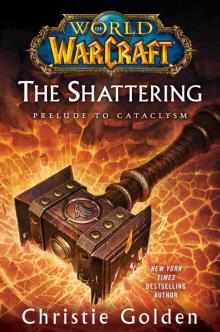 The Shattering: Prelude to Cataclysm wowct-1
The Shattering: Prelude to Cataclysm wowct-1 STAR TREK: VOY - Homecoming, Book Two - The Farther Shore
STAR TREK: VOY - Homecoming, Book Two - The Farther Shore King's Man and Thief
King's Man and Thief In Stone's Clasp
In Stone's Clasp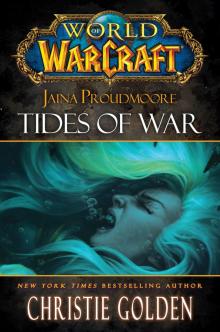 Jaina Proudmoore: Tides of War
Jaina Proudmoore: Tides of War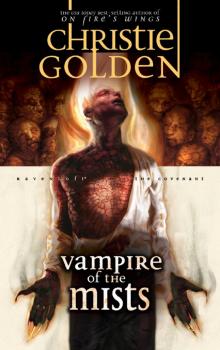 Vampire of the Mists
Vampire of the Mists Star Wars: Fate of the Jedi II: Omen
Star Wars: Fate of the Jedi II: Omen King's man and thief cov-2
King's man and thief cov-2 Star Trek
Star Trek StarCraft: Dark Templar: Twilight
StarCraft: Dark Templar: Twilight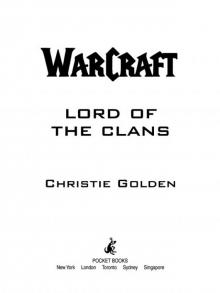 Lord Of The Clans
Lord Of The Clans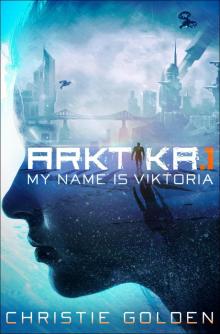 ARKTIKA.1 (Short Story)
ARKTIKA.1 (Short Story)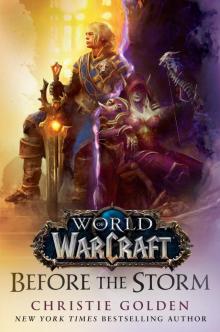 Before the Storm
Before the Storm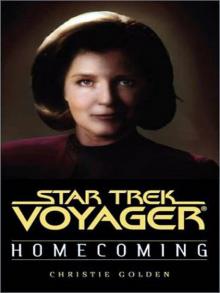 STAR TREK: VOY - Homecoming, Book One
STAR TREK: VOY - Homecoming, Book One Shadow of Heaven
Shadow of Heaven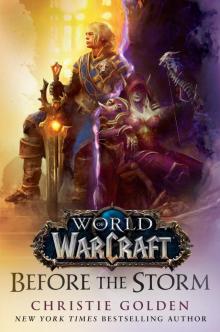 Before the Storm (World of Warcraft)
Before the Storm (World of Warcraft)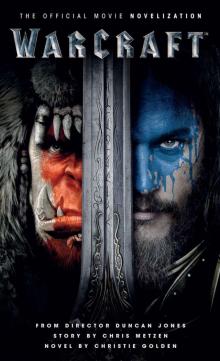 Warcraft Official Movie Novelization
Warcraft Official Movie Novelization Flashpoint
Flashpoint STAR TREK: The Original Series - The Last Roundup
STAR TREK: The Original Series - The Last Roundup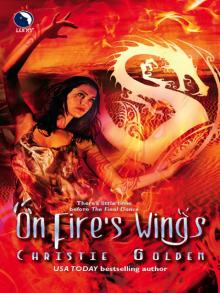 On Fire’s Wings
On Fire’s Wings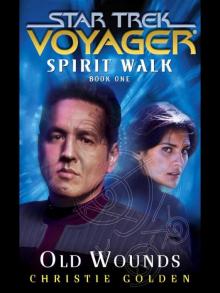 Spirit Walk, Book One
Spirit Walk, Book One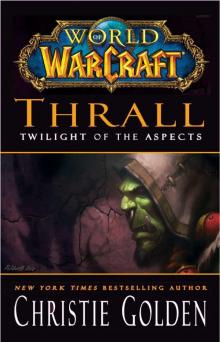 Thrall Twilight of the Aspects
Thrall Twilight of the Aspects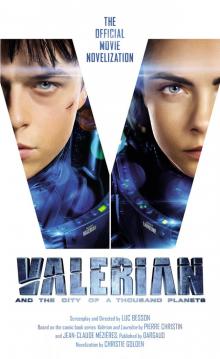 Valerian and the City of a Thousand Planets
Valerian and the City of a Thousand Planets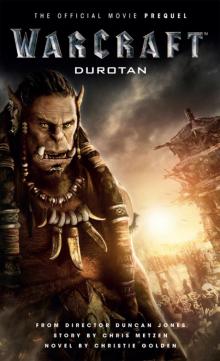 Warcraft
Warcraft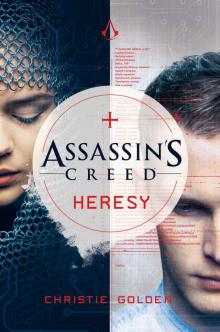 Assassin's Creed: Heresy
Assassin's Creed: Heresy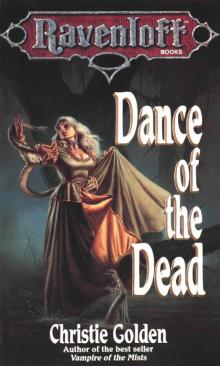 Dance of the Dead
Dance of the Dead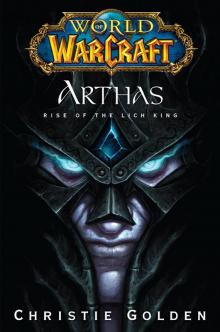 Arthas: Rise of the Lich King wow-6
Arthas: Rise of the Lich King wow-6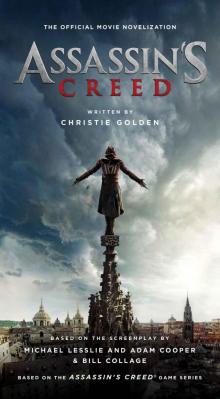 Assassin's Creed: The Official Movie Novelization
Assassin's Creed: The Official Movie Novelization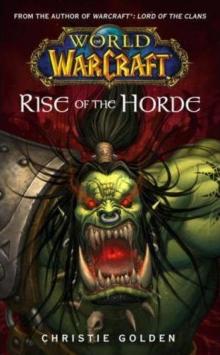 Rise of the Horde wow-2
Rise of the Horde wow-2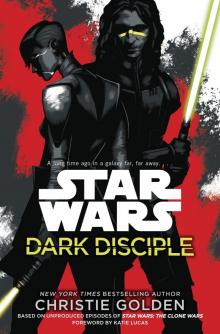 Dark Disciple
Dark Disciple Ghost Dance
Ghost Dance The Shattering
The Shattering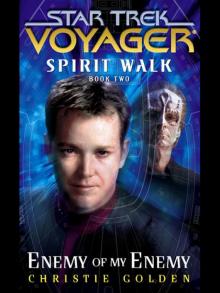 Spirit Walk, Book Two
Spirit Walk, Book Two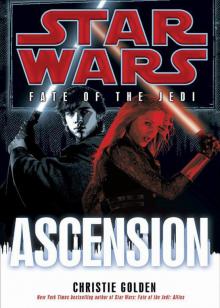 Star Wars: Fate of the Jedi: Ascension
Star Wars: Fate of the Jedi: Ascension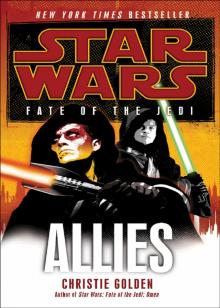 Star Wars: Fate of the Jedi V: Allies
Star Wars: Fate of the Jedi V: Allies The Enemy Within
The Enemy Within Kindred Spirits
Kindred Spirits The Farther Shore
The Farther Shore Star Trek: Hard Crash (Star Trek: Starfleet Corps of Engineers Book 3)
Star Trek: Hard Crash (Star Trek: Starfleet Corps of Engineers Book 3) Twilight
Twilight